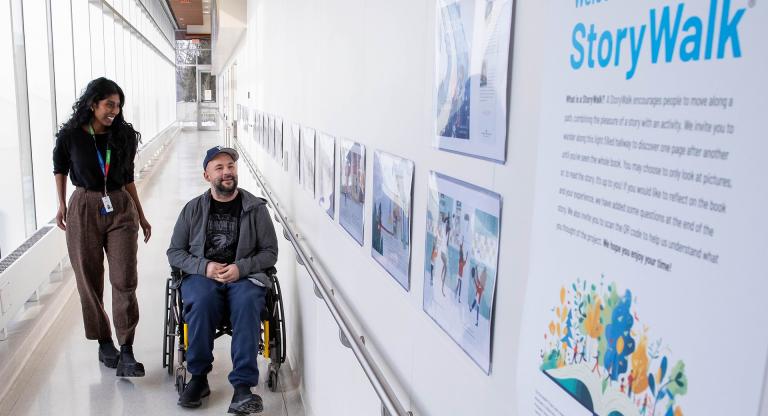Sinai Health’s study investigates underuse of breakthrough diabetes treatments

Despite their potential to transform type 2 diabetes (T2D) management, the adoption of new medications like SGLT2 inhibitors and GLP1 agonists has been slow, leaving many patients yet to experience their substantial health benefits.
“The benefits of SGLT2 inhibitors and GLP1 agonists have been proved in multiple large-scale clinical trials. To date, there have been over 10 clinical trials of these medications that have proved their impressive benefits,” said Dr. Michael Fralick, Clinician Scientist at Sinai Health.
But not everyone is on board.
In North America, less than 5% of patients with T2D and added complications from heart disease are prescribed these drugs, said Dr. Fralick.
“I see patients at Sinai Health in downtown Toronto and the Sault Area Hospital in Sault Ste. Marie in Northern Ontario. In both settings, I have observed that these medications are rarely prescribed to the patients who are most likely to benefit from them,” said Dr. Fralick, who is also affiliated with the Lunenfeld-Tanenbaum Research Institute and is an Assistant Professor at the Institute of Health Policy, Management and Evaluation at the University of Toronto.
“It is hard to know exactly why, but I think it is related to prescribing inertia and a lack of realisation for how effective they are.”
Dr. Fralick and his team will now explore what influences doctors’ decisions to prescribe these drugs and assess their advantages and risks. Their goal is to develop evidence-based strategies that will ensure patients are receiving medications that have real benefits.
In a study supported by the highly competitive Early Researcher Award from the Government of Ontario, and working with experts in diabetes research and control, including international collaborators from Denmark, the team will review health records of Ontario patients hospitalised with T2D from 2015 to 2023. They will also examine comprehensive health data from Denmark to understand the long-term health effects of not using these medications.
Nearly three million Canadians live with T2D, a condition that can lead to other complications, including heart and kidney disease. The newer medications, sodium-glucose co-transporter 2 (SGLT2) inhibitors and glucagon-like peptide 1 (GLP1) agonists, offer more than just blood sugar control for those with T2D. They also help improve heart and kidney function and overall metabolic health.
SGLT2 inhibitors lead to the excretion of sugar into the urine, which leads to weight loss and lowers blood glucose, while GLP1 agonists mimic the function of a gut hormone that not only lowers blood glucose but also reduces appetite. But the benefits extend to beyond blood sugar control, prompting the influential Science magazine to name GLP1 agonists the 2023 Breakthrough of the Year for their potential to treat obesity, diabetes, kidney disease, and heart disease.
Despite their advantages, doctors have been hesitant to prescribe these medications, particularly to patients in hospital who are more likely to have heart problems and other serious issues. Instead, these patients often receive older drugs, such as sulfonylureas and DPP4 inhibitors, which have no heart or kidney benefits.
Moreover, this prescription hesitancy disproportionately affects racialised people and other vulnerable groups, including women and people from lower socioeconomic backgrounds. Individuals from these groups are also more likely to have T2D and would therefore benefit the most from taking these medications, said Dr. Fralick.
The team will first use patient records from across Ontario hospitals to identify how often patients are prescribed SGLT2 inhibitors and GLP1 agonists. The researchers will then look at different factors that might influence the decision to use these drugs, such as patient age, sex, and other health conditions, as well as hospital-level factors, such as hospital location.
One reason for avoiding SGLT2 inhibitors might be a rare but serious side effect that can cause diabetic ketoacidosis (DKA). While DKA is a condition where harmful acids accumulate in the blood, it’s often preventable, and previous studies by Dr. Fralick indicate its occurrence is rare among those taking SGLT2 inhibitors—about 1 in 200. The researchers will now assess the risk of DKA in hospitalized patients on SGLT2 inhibitors compared to those on other diabetes drugs to better understand this relationship.
Finally, they will investigate the short and long-term effects of patients missing out on these drugs by monitoring their blood sugar levels while they are in hospital and the occurrence of heart disease for one year after being discharged.
Dr. Fralick is hopeful that this research will bring change to prescribing practices.
“I hope our work will lead to greater use of SGLT2 inhibitors and GLP1 agonists for the patients most likely to benefit from them. In doing so, these patients will lose weight, have better glucose control, and have a lower risk of heart and kidney disease,” he said.
“I congratulate Dr. Fralick on receiving the prestigious Early Researcher Award to deepen our understanding and optimise the use of critical diabetes medications,” said Dr. Anne-Claude Gingras, Director of the Lunenfeld-Tanenbaum Research Institute and Vice President of Research at Sinai Health. “This research has the potential to shape a healthier future for millions of Canadians living with type 2 diabetes and its complications.”
The results of the study will be incorporated into a freely accessible online tool previously developed by Dr. Fralick’s team to help physicians weigh the risks and benefits of prescribing T2D medications. The first version is available at www.sglt2rx.com.












